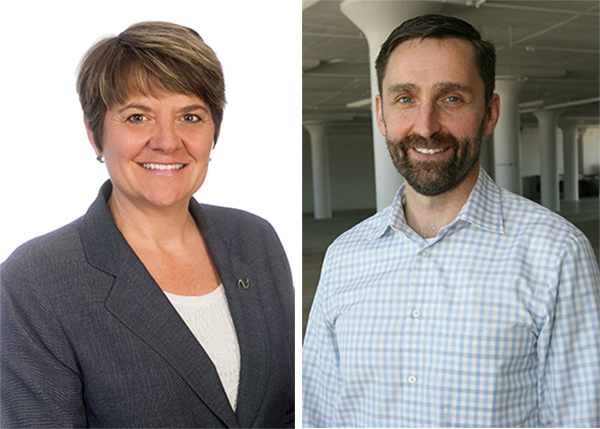Now is the time to invest in the success of a new generation
March 23, 2021
Editor's Note: This piece originally appeared in the March 19, 2021 edition of the Boston Business Journal. To learn more about the Boston Opportunity Agenda's Generation Success partnership, visit gensuccess.org.
By Lisa A. Brothers, President & CEO of Nitsch Engineering, and Paul Blandini, Senior Director of Strategy and Business Operations at Autodesk
The COVID-19 pandemic has forced a reimagining of the future of work, the workforce and many of our systems of education and training. But this disruption is also an opportunity to address one of Boston’s most persistent problems.
Currently, less than half of students who graduate from Boston’s district, charter and Catholic schools are prepared to pursue higher education – despite more than half of all job vacancies in the city requiring at least an Associate’s degree. These gaps in readiness are widening as COVID-19 disproportionately affects Black, Latinx, Asian and Native American students living in historically underfunded and under-engaged communities. Now more than ever, industry and community leaders must put our collective energy into Boston’s students so they can chart their own course for life and success after high school.
Connections among education, business and industry are not new. Indeed, both of our companies, Autodesk and Nitsch Engineering, have “rolled up our sleeves” and collaborated with schools, nonprofits and other local industry partners to expose K-12 students to diverse career paths in the construction, architecture and engineering industries.
At Autodesk, accelerated pathways and internships help students gain skills in advanced manufacturing and construction, and programs like the Future of Construction have helped students think critically and creatively, and navigate real-world problems – like climate change – under the guidance of industry mentors.
Similarly, at Nitsch Engineering, engineers work with young people to generate excitement about the evolving engineering and land surveying industries. Since 2002, Nitsch has hosted the annual “Introduce a Girl to Engineering Day” that combines stories of female engineers with hands-on activities to inspire young girls (Grades 6-12) to explore engineering. Working with the United Way of Massachusetts Bay and Merrimack Valley’s BoSTEM program, we have further expanded our outreach through such programs as Massachusetts STEM Week, the Boston Public Schools (BPS) STEM Discovery EXPO, student activities at our office and school classroom visits.
These mentorships and hands-on experiences spark curiosity and excitement from students about the emergence of new technology, and its impact on the world. But they are far too rare. For students to succeed in an increasingly automated economy and for Boston to have a first-in-the-nation economy, we must continue to familiarize youth with diverse jobs – and equip them with the opportunities, information and training to thrive in their chosen careers.
That is why we, along with dozens of other business leaders, are intensifying our efforts to prepare students with the skills and talents they need for college, career and life through the newly launched Generation Success. Generation Success is rooted in the belief that young people have the resilience, adaptability and commitment to succeed after high school, but they need caring adults invest the financial and in-kind resources to create opportunities and remove systemic barriers to success.
Generation Success recently awarded $30,000 to three local organizations: FableVision, XR Terra and Fontbonne’s Early College High School Program– that connect students more fully with emerging industries, like digital animation, industrial manufacturing, computer science and engineering. We need this kind of innovation and dedication to continue.
Programs like Generation Success can further broaden our reach, so that each and every high school student has the confidence, motivation and skills to enter our workforce and achieve success in life as they define it. We need the broader Boston community — including businesses, post-secondary institutions and nonprofits — to step up and create opportunities for our next generation’s success.

